Although fish remains an excellent source of protein and contains essential vitamins and minerals for breastfeeding women, some care must be taken in deciding on the amount and types of seafood to consume. Most fish contain some amount of mercury, which accumulates in fish flesh and can pass from mother to infant through breast milk. This can have adverse effects on the brain and nervous system of the breastfed infant.
Maternal Diet
Yes. Breastfeeding mothers generally need more calories to meet their nutritional needs while breastfeeding. An additional 330 to 400 kilocalories (kcal) per day is recommended for well-nourished breastfeeding mothers, compared with the amount they were consuming before pregnancy (approximately 2,000 to 2,800 kcal per day for breastfeeding women verses 1,600 to 2,400 kcal per day for moderately active, non-pregnant women who are not breastfeeding). The number of additional calories needed for an individual breastfeeding woman is also affected by her age, body mass index, activity level, and extent of breastfeeding (exclusively breastfeeding verses breastfeeding and formula feeding). The Dietary Reference Intake (DRI) Calculator for Healthcare Professionals external icon can be used to estimate calorie needs based on sex, age, height, weight, activity level, and pregnancy and lactation status.
Refer to guidance from the US Department of Agriculture (USDA) and Health and Human Services (HHS) for more information on vitamins, minerals, and calories needed while breastfeeding in the Dietary Guidelines for Americans. pdf icon [PDF-30.6MB] external icon
Should mothers take a multivitamin while breastfeeding?
Maybe. Continued use of a prenatal vitamin postpartum may exceed the iron and folic acid needs of a breastfeeding mother. However, some people, such as those with vegetarian and vegan diets, may not get adequate nutrients through their diet alone and may be at greater risk for nutritional deficiencies. In addition, the recommended dietary allowances (RDAs) (the average amount of a vitamin or mineral that meets the daily nutrient needs of nearly all healthy people) for some nutrients (such as iodine and choline) increase while breastfeeding; therefore, it is possible that diet alone may not be sufficient to ensure adequate nutrition for women who are breastfeeding. In these cases, breastfeeding mothers may benefit from taking a multivitamin supplement. Health care providers should work with lactating women to determine appropriate dietary supplements during lactation.
Are there any nutrients that mothers should increase while breastfeeding?
Yes. A mother’s need for iodine and choline increases during lactation. The Dietary Guidelines for Americans recommend lactating parents consume 290 mcg of iodine and 550mg of choline daily throughout the first year postpartum. Iodine can be found in dairy products, eggs, seafood, or in iodized table salt. Choline can be found in dairy and protein food groups, such as eggs, meats, some seafood, beans, peas, and lentils. Health care providers should work with lactating mothers to determine if they need an iodine or choline supplement to achieve adequate intake.
Are there any foods that mothers should avoid or limit while breastfeeding?

Generally, women do not need to limit or avoid specific foods while breastfeeding. Mothers should be encouraged to eat a healthy and diverse diet external icon . However, certain types of seafood should be consumed in a limited amount and some mothers may wish to restrict caffeine while breastfeeding.
Seafood:
Although fish remains an excellent source of protein and contains essential vitamins and minerals for breastfeeding women, some care must be taken in deciding on the amount and types of seafood to consume. Most fish contain some amount of mercury, which accumulates in fish flesh and can pass from mother to infant through breast milk. This can have adverse effects on the brain and nervous system of the breastfed infant.
Breastfeeding women (as well as pregnant women, women of childbearing age) should follow the US Food and Drug Administration’s (FDA) and the Environmental Protection Agency’s (EPA) advice external icon about eating fish:
- Eat a variety of fish.
- If you eat fish caught by family or friends, check for fish advisories external icon . If there is no advisory, eat only one serving and no other fish that week.
- Try to avoid eating the “Choices to Avoid” fish or feeding them to children. It is best to eat a variety of fish from the “Best Choices” and “Good Choices” categories on this chart. external icon
- 1 serving = 4 ounces of fish, measured before cooking. Eat 2 to 3 servings (between 8 and 12 ounces) of fish a week from the “Best Choices” list OR 1 serving (4 ounces) from the “Good Choices” list on this chart external icon .
Mercury can be harmful to the brain and nervous system of any person exposed to too much of it over time. Thus, lower mercury fish are a good choice for everyone. Learn more about mercury exposure and breastfeeding.
Caffeine:
Caffeine passes from the mother to infant in small amounts through breast milk, but usually does not adversely affect the infant when the mother consumes low to moderate amounts (about 300 milligrams or less per day, which is about 2 to 3 cups of coffee). Irritability, poor sleeping patterns, fussiness, and jitteriness have been reported in infants of mothers with very high intakes of caffeine, about 10 cups of coffee or more per day.
If an infant appears to be more fussy or irritable after the mother consumes high amounts of caffeine, she should consider decreasing her intake. Preterm and younger newborn infants break down caffeine more slowly, so mothers of these infants might consider consuming even less caffeine.
Common dietary sources of caffeine include the following:
- Coffee.
- Sodas.
- Energy drinks.
- Tea.
- Chocolate.
Search “caffeine” in LactMed external icon for more information on caffeine consumption and breastfeeding.
Are there any special diet recommendations for mothers who eat a vegan or vegetarian diet while breastfeeding?
Yes. Breastfed infants of women who do not consume any animal products may have very limited amounts of vitamin B12 in their bodies. These low amounts of vitamin B12 can put their infants at risk of vitamin B12 deficiency, which can result in neurological damage. Iron may also be of concern as plant source foods only contain non-heme iron, which is less bioavailable than heme iron. The American Dietetic Association recommends vitamin B12 supplementation during pregnancy and while breastfeeding for mothers who eat vegan or vegetarian diets. Health care providers should work with lactating individuals eating a vegetarian or vegan diet to determine if they also need supplementation of iron and other nutrients such as choline, zinc, iodine, or omega-3 fats (EPA/DHA).
Can I Eat That? I’m Breastfeeding

It’s a good source of protein. Some, like salmon and tuna, also give you omega-3s, which your body needs. But what about mercury and other contaminants? You can have cooked seafood twice per week. Each serving can be up to 6 ounces, which is the size of two decks of cards. Choose types that are lower in mercury, such as salmon, tilapia, and trout. Avoid shark, swordfish, king mackerel, and tilefish, which have high levels of mercury.
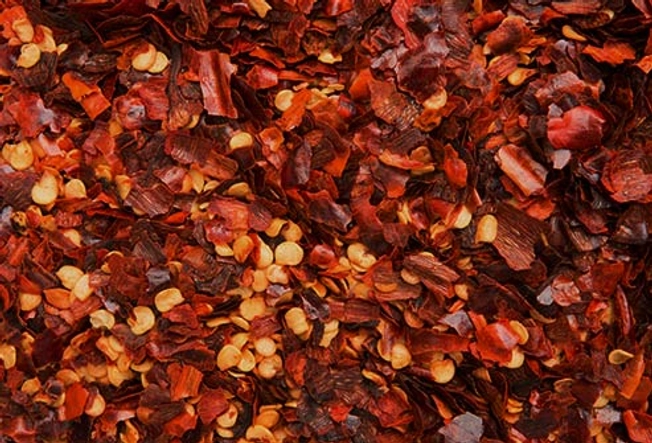
Spicy Foods
2/10
Love hot sauce? Most babies can handle it and other fiery foods in your diet. But if your little one is gassy or colicky and gets diarrhea every time you sprinkle red pepper flakes over your pizza, cut back on the heat for a few weeks to see if that helps.

Peppermint, Parsley, and Sage
3/10
They’re full of flavor. But some herbs may affect how much milk your body makes. For instance, eating a lot of parsley could curb lactation. And too much sage and peppermint may cut your milk supply. For some nursing moms, even peppermint-flavored toothpaste and candies are a problem.
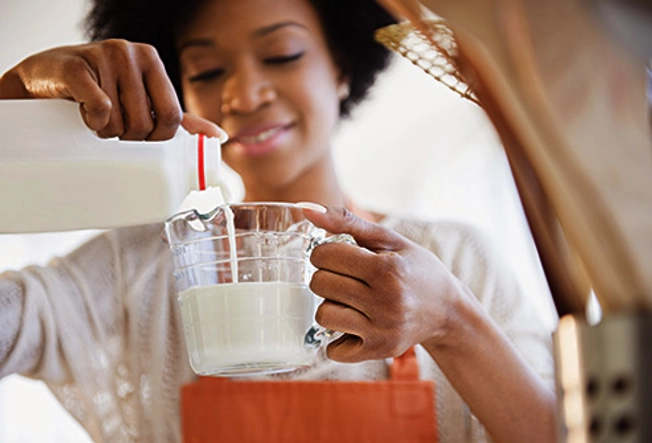
Milk
4/10
It’s rarely a problem. But see how your baby does. Tell your pediatrician if your tot gets skin problems, has trouble breathing after breastfeeding, or has other symptoms.
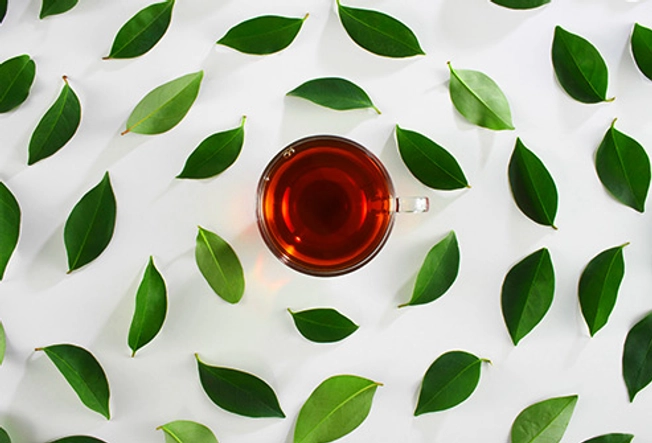
Tea
5/10
As refreshing as your cup of chai or Earl Grey may be, it has some downsides. It’s got caffeine, which can affect your sleep – and your baby’s. It may also make it harder for your body to absorb iron, which you need for energy. If you drink hot or iced tea, try not to sip it when you eat foods that are rich in iron, such as lean meat; dark, leafy greens; and fortified breakfast cereals.
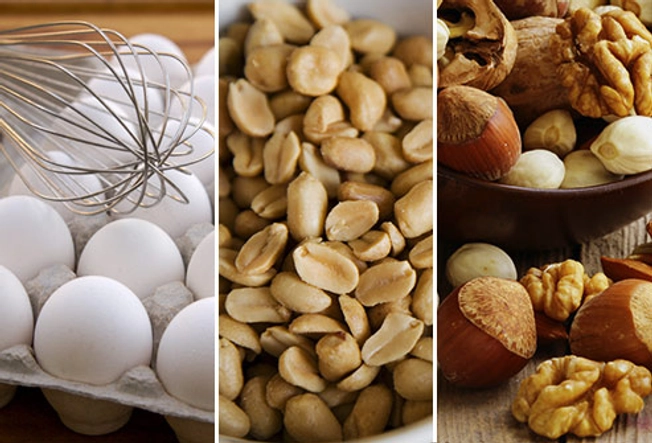
Eggs, Peanuts, and Nuts
6/10
What if you aren’t allergic, and you want to prevent your baby from developing an allergy? Sorry, but there’s no proof that you can do that by skipping specific foods. Cutting certain foods out of your diet may make the skin condition eczema less likely for your little one. Ask your doctor or pediatrician for advice.

Sugary Drinks
7/10
Breastfeeding can make you thirstier than you usually are. If that’s the case, drink a glass of water every time you breastfeed. But no matter how parched you feel, don’t go for regular sodas or fruit drinks, which give you calories without nutrition.

Alcohol
8/10
It’s best for your baby if you don’t have any booze at all. But if you do choose to drink, don’t breastfeed until the alcohol has completely cleared your milk. For 12 ounces of beer, 5 ounces of wine, or 1.5 ounces of liquor, wait at least 3 hours. Pumping doesn’t speed that up.
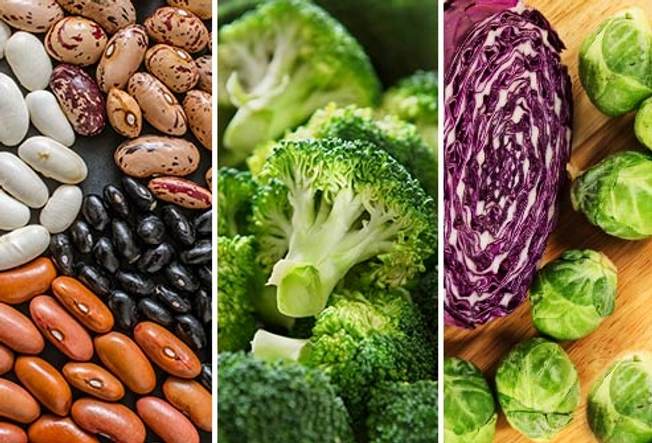
Gassy Foods
9/10
Common culprits include beans, broccoli, cabbage, and Brussels sprouts. Bloating, burping, and passing gas are normal. But if your baby is gassy or has colic, avoid these foods for a few weeks to see whether they relieve the symptoms.
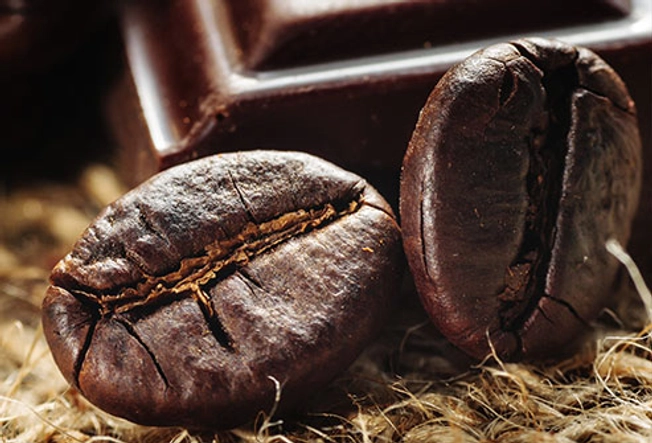
Chocolate and Coffee
10/10
Both have caffeine. You’ll also find it in energy drinks and cola. If you’re lost without your latte, limit yourself to 2-3 cups per day of the brewed kind. Or you could switch to decaf.
Are there any foods to avoid when breastfeeding?

Most breastfeeding moms can eat a broad range of foods without it affecting their babies. But every situation is different. If you notice that your baby seems to be fussy, sleepless, or gassy after you eat a particular food, talk to your baby’s doctor about whether the cause could be your diet or something else.
Foods to avoid or limit while breastfeeding
Foods with special safety concerns for breastfeeding moms include:
Fish: Avoid eating the following high-mercury fish species:
- Swordfish
- Shark
- King mackerel
- Marlin
- Orange roughy
- Bigeye tuna
- Tilefish from the Gulf of Mexico
But fish isn’t off limits when you’re breastfeeding, as long as you limit the amount you eat and choose low-mercury fish and seafood. In fact, it’s recommended that breastfeeding moms eat 8 to 12 ounces of low-mercury fish each week, which is a great source of DHA and EPA, two omega-3 fatty acids that are difficult to find in other foods.
Plus, you can enjoy raw fish while breastfeeding! Unlike during pregnancy, there’s no need to avoid sushi, poke, or seared tuna.
Alcohol: It’s safest not to drink any alcohol while breastfeeding, but it’s okay to have an occasional drink if you:
- Time it carefully. Breastfeed your baby (or pump breast milk) immediately before drinking, if possible. After you have a drink, wait at least two hours before breastfeeding. If your breasts are full before that waiting period ends, you can pump and dump your breast milk. If your baby needs to eat before the two hours are up, feed them previously expressed breast milk.
- Allow for individual factors that affect blood alcohol level. These include whether you’ve had any food and how much you weigh.
- Drink in moderation. The waiting period is two hours per drink, so it’s difficult to have more than one drink safely unless you have an older baby who doesn’t nurse as frequently. The same amount of alcohol that makes it into your bloodstream makes it into your breast milk, so that waiting period is important.
Caffeine: Too much could overstimulate your baby. It’s fine to have two or three cups of coffee (300 milligrams of caffeine) spread throughout the day, but more than that could disrupt your baby’s sleep or make them fussy. Keep in mind that caffeine is also found in some sodas, teas, and over-the-counter medicines.
Advertisement | page continues below
Herbs: Certain herbs, including some herbal teas, aren’t considered safe for breastfeeding moms. Since herbs can be very potent, check with your healthcare provider before taking any. Also, some herbs can decrease your milk supply.
Chocolate: Too much could overstimulate your baby. But we’re talking large amounts. It’s okay to have a few pieces of chocolate or slice of chocolate cake. But if you eat large amounts of chocolate, the theobromine (a stimulant) in the chocolate can affect your baby in much the same way as caffeine does.
Dark chocolate has more theobromine than milk chocolate, and white chocolate has no theobromine (the ingredient is in the cocoa solids). Chocolate also contains caffeine, another reason not to overdo it.
Could my baby react to a food I eat while breastfeeding?
It’s possible. If your baby seems to be reacting to a food in your diet, talk to their doctor. They could have a food intolerance, or it could be something else.
An intolerance is a digestive condition – unlike an allergy, which is an immune response. Symptoms of a food intolerance include:
- Fussiness
- Congestion
- Rash
- Vomiting
- Bloody diarrhea
The two most common causes of food intolerances in infancy are:
- Cow’s milk protein intolerance: If your baby is afflicted, avoid any food that has milk, milk products, casein, whey, or sodium caseinate in it.
- Soy protein intolerance: If your baby is afflicted, avoid all soy products, such as tofu, tempeh, tamari, soy sauce, soy milk, miso, and edamame.
Could my baby be allergic to foods I eat while breastfeeding?
Your breast milk is very unlikely to trigger an allergic reaction in your baby, even if you eat allergenic foods such as peanuts, fish, shellfish, and eggs.
If your baby has allergy symptoms (such as eczema or a rash, runny nose, sneezing, coughing, red and watery eyes, vomiting, or diarrhea), they may be caused by something they’re in regular contact with, such as soap, pet dander, dust, pollen, or foods they’re eating once they start solids.
In rare cases, a baby may be allergic to food allergens such as cow’s milk protein in the mother’s diet. If you’re worried about a reaction to allergenic foods you eat, have your baby evaluated by their healthcare provider. The only treatment for a breastfed baby with a food allergy is strict avoidance in your diet.
Will foods I eat while breastfeeding make my baby gassy?
There’s evidence that a small number of nursing babies may be sensitive to dairy products in their mom’s diet and be more gassy as a result.
You may have heard that it helps to avoid certain foods while breastfeeding – such as citrus fruits, orange juice, spices (cinnamon, curry, chili pepper), spicy food, and “gassy” veggies (cabbage, onion, broccoli, cauliflower) – but there’s no convincing scientific evidence to support that advice.
Still, if you notice that your nursing baby seems fussy, gassy, or sleepless after you eat a particular food, talk to your baby’s doctor. They may recommend eliminating the food from your diet for at least three weeks and then reintroducing it to see if there’s a consistent effect.
Should I avoid foods with strong flavors like garlic?
No. While some strongly flavored foods may change the taste of your milk, most babies seem to enjoy a variety of breast milk flavors.
Plus, the dominant flavors of your diet were in your amniotic fluid during pregnancy. Fetuses swallow a fair amount of amniotic fluid before birth, so when they taste those flavors again in their mother’s breast milk, they’re already accustomed to them.
Learn more:
- Diet for a healthy breastfeeding mom
- How to safely store breast milk
Was this article helpful?
Follow your baby’s amazing development
track my baby
BabyCenter’s editorial team is committed to providing the most helpful and trustworthy pregnancy and parenting information in the world. When creating and updating content, we rely on credible sources: respected health organizations, professional groups of doctors and other experts, and published studies in peer-reviewed journals. We believe you should always know the source of the information you’re seeing. Learn more about our editorial and medical review policies.



